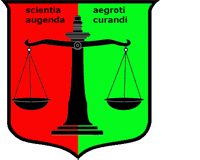IFMA Preventive Health Management Inc.Institute for Medical AdvancementNew York, NY 10005, USA |

|


|
Speech AbnormalitiesUsing speech samples of 100 patients suffering from schizophrenia, bipolar illness and major depression, we addressed the question of the extent to which the linguistic abnormalities in the speech of these patients represent diagnosis-specific characteristics, or constitute independent, syndrome-like dimensions of the illnesses. All speech samples were transcribed by a professional linguist who was blind to both identity and diagnosis of the patients. The majority of the deviant linguistic variables was found to be common to all three diagnostic groups under comparison, while only a few linguistic variables exhibited statistically significant between-group differences. Linguistically Deviant SpeechThe variety of subtle between-group differences allowed us, when the respective variables were analysed as a multivariate entity, to discriminate between the diagnostic groups at an overall performance of 72.7% correctly classified patients. There was an almost complete lack of association between linguistic abnormalities and psychopathology syndromes. In particular, we found no correlation between the syndrome "formal thought disorder" and the large variety of linguistic variables used in this investigation. In consequence, we conjecture that linguistically deviant speech characteristics represent an independent syndrome complex manifested at varying intensities across mental illnesses, and that this syndrome complex deserves greater attention not only with respect to the principal understanding of the underlying disturbances, but also as a potential target of therapeutical intervention. More to Explore
Stassen HH, Bachmann S, Bridler R, Cattapan K, Herzig D, Schneeberger A, Seifritz E:
Detailing the Effects of Polypharmacy in Psychiatry: Longitudinal Study of 320 Patients
Hospitalized for Depression or Schizophrenia. Arch Psychiatry Clin Neurosci. 2022; 272(4): 603-619
[get the article]
Moragrega I, Bridler R, Mohr C, Possenti M, Rochat D, Sanchez Parramon J, Stassen HH:
Monitoring Mental Health and the Effects of Therapeutic Interventions through Self-Assessment
Voice Analyses. Res Psychother. 2021, 24(3): 250-262
[get the article]
Zhang M, Bridler R, Mohr C, Moragrega I, Sun N, Xu Z, Yang Z, Possenti M,
Stassen HH: Early Detection of the Risk of Developing Psychiatric Disorders:
A Study of 461 Chinese University Students under Chronic Stress.
Psychopathology 2019; 52(6): 367-377
Mohr C, Braun S, Bridler R, Chmetz F, Delfino JP, Kluckner VJ, Lott P, Schrag Y,
Seifritz E, Stassen HH: Insufficient Coping Behavior under Chronic Stress and
Vulnerability to Psychiatric Disorders. Psychopathology 2014; 47: 235-243
Stassen HH, Anghelescu IG, Angst J, Böker H, Lötscher K, Rujescu D, Szegedi A,
Scharfetter C: Predicting Response to Psychopharmacological Treatment. Survey
of Recent Results. Pharmacopsychiatry 2011; 44: 263-272
Stassen HH: Veränderungen der Sprechmotorik. In: T.Jahn (ed) Bewegungsstörungen
bei psychischen Erkrankungen. Springer Heidelberg 2004: 107-125
Lott PR, Guggenbühl S, Schneeberger A, Pulver AE, Stassen HH: Linguistic analysis
of the speech output of schizophrenic, bipolar, and depressive patients.
Psychopathology 2002; 35(4): 220-227
|
|

Characteristic variability of spectral intensities among depressive patients ("intonation"). The variations of spectral intensities are plotted along the y-axis on log-proportional scales and as a function of frequency (x-axis: 7 octaves covering the frequency range of 64-8192Hz).
Please note:
Depression significantly reduces the dynamic expressiveness of human voices, thus greatly reducing
inter-individual differences. As a direct consequence, the patients' voices become more similar to
each other ("depressive voice"). Voices regain their distinct individuality during recovery.
|
|
| [ Mail to Webmaster ] k454910@ifma-health.com |